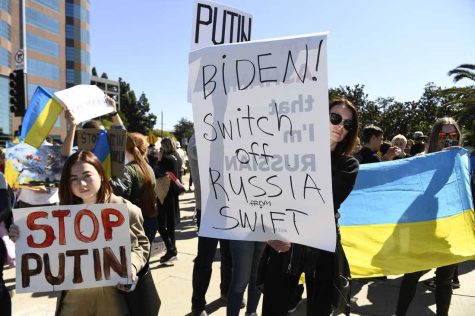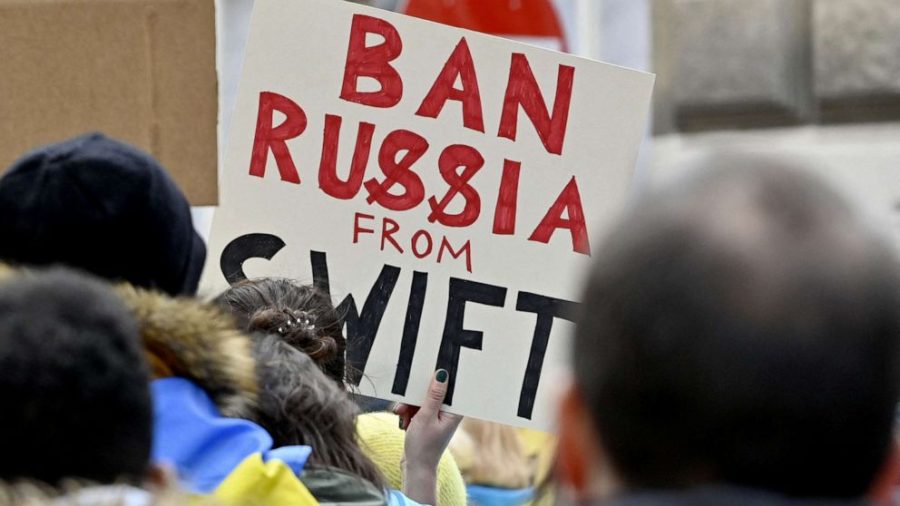Russian Banks on Their Way to Becoming “De-SWIFTed”
In a protest against the Russian attacks on Ukraine, some people demand that Russia be taken out of the SWIFT network.
March 10, 2022
Two days after Russia launched attacks on Ukraine, the United States, Canada and other European allies have considered disconnecting some Russian banks from SWIFT (Society for Worldwide Interbank Financial Telecommunication). In addition, U.S. President Joe Biden’s administration announced sanctions against Russia’s central bank as well as Russia’s two largest financial institutions, which intend to cut off major parts of the Russian financial system from the U.S. dollar. This means that the Russian banks would no longer be able “financially interface” to transfer money.
Limitations of SWIFT
SWIFT is the system that connects over 10,000 financial institutions in a network where they can interact with each other all around the world. It allows participating banks to settle payments (financial, commercial and foreign-exchange). By cutting Russian banks out of SWIFT, they can no longer use the network to exchange information. Although cutting banks out of SWIFT is a dangerous threat, it may not be as big of a “nuclear weapon” some suggest. Denying access to SWIFT does not stop banks from transacting with the thousands of other banking institutions outside of SWIFT. Without sanctions on actual money transfers, denying countries access to SWIFT could sabotage the network by encouraging banks to rely on other financial communication networks. Today, SWIFT continues to be dominated by major U.S. financial institutions, with 40 percent of recorded transactions occurring in U.S. dollars. Making the U.S.-centered financial order less attractive is precisely the type of collateral damage the U.S. seeks to avoid.

Possible Repercussions
If Russia’s financial system is largely disconnected from SWIFT, then facilitating cross-border payments will become much more inefficient for Moscow. But under the existing U.S. and E.U. sanctions approach, alternative messaging systems could presumably still be used to send payment instructions that reach TARGET2 and CHIPS for transactions involving many Russian banks.
Another reason that Brussels and the Biden administration may fear completely disconnecting most Russian banks from SWIFT is the concern over the potential for “retaliatory responses” by Russia. Some Russian government officials say that such an action would be equivalent to a declaration of war. Others in Europe have more parochial concerns, fearing that strict sanctions and a broad SWIFT disconnect would lead to troubles at E.U. banks, which reportedly had more than $76 billion in outstanding Russian loans as of late last year. Some in the U.S. worry that disconnecting most Russian banks from SWIFT or implementing harsher sanctions will drive Russia to rely on the Chinese financial market infrastructure.



















